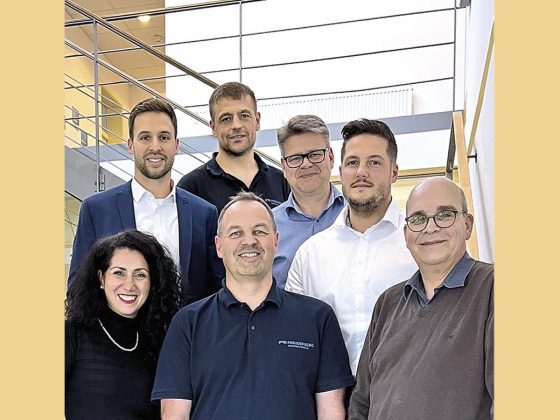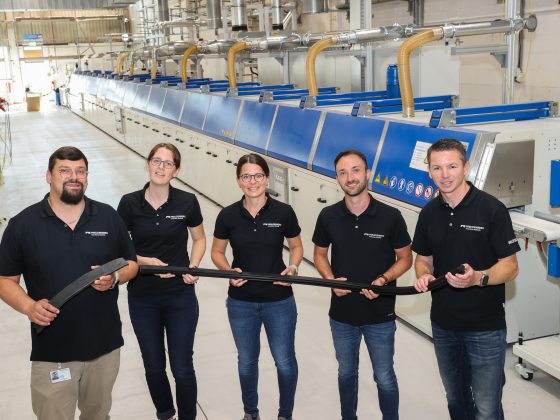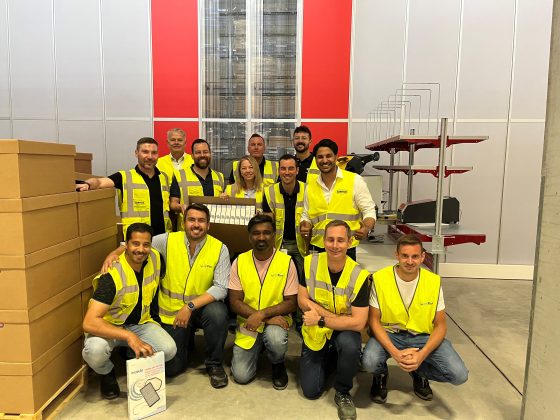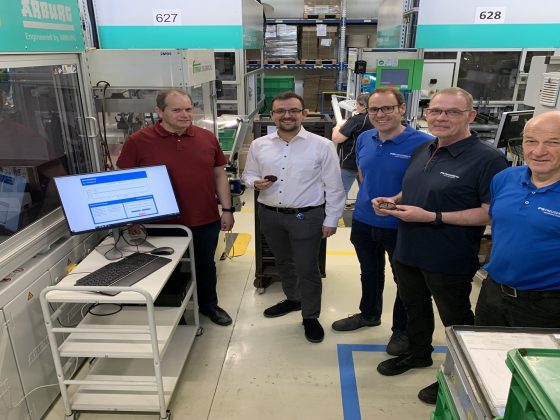The standard is “customer centricity.” It means that every activity is focused on the customer’s needs. Sales General Industry is turning to artificial intelligence and the digital assistant, Sally, to help it achieve this goal.

Sally – Your Personal Assistant
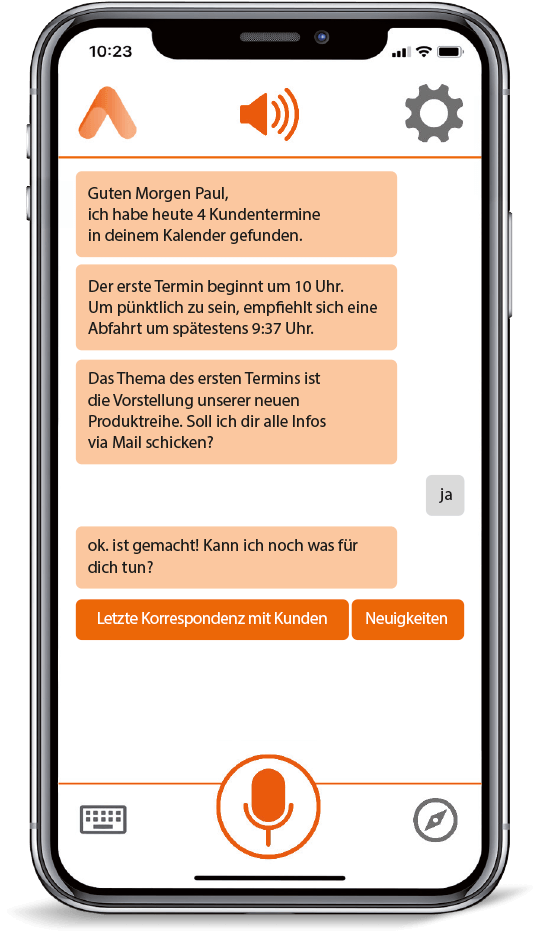
- Sally supports FST across the entire sales process, from management to external sales.
- Sally identifies connections in information from employees and customers and updates the responsible parties about them.
- Sally collects information on customers and competitors, creating a strategic edge for FST.
- Sally speaks more than 10 languages.
- Sally is always on the employees’ side.
Let’s imagine there is a digital tool that makes precise recommendations to sales staff on what they should do to excite a customer about Freudenberg Sealing Technologies (FST) and jump-start new business. Visualize a virtual personal assistant who uses artificial intelligence to recommend specific actions on how to boost customer satisfaction and business success. Now wrap your mind around this: the idea is close to reality for sales representatives with FST’s General Industry (GI) organization.
Sally is the name of the digital tool developed collaboratively by Sales GI and a CPIM team led by Anika Dingert and Sascha Riedler. Sally has been used by Sales GI account managers around the world for more than a year. There was a pilot phase with a limited group of users before its launch. Speech inputs and spoken dialogue in the style of a voice assistant like Siri or Alexa are also possible with Sally, but these features quickly retreated into the background during the development process at Sales GI. Today Sally is mainly an easyto-use Chatbot, a text-based dialogue system in Micro soft Teams that combines multifaceted tasks into a single system – in up to 10 languages.

Suppose a discussion with a customer is coming up. Sally not only remembers the appointment at the appropriate time – she also puts all the relevant customer information at your fingertips with the push of a button, eliminating time-consuming research in the CRM system. She simultaneously lists standardized or customizable questions that should be addressed in the discussion. The system is simple and intuitive, making it possible for anyone to use the assistant – either with or without prior knowledge or a grasp of IT. “This is confirmed by the positive response we’ve had ,” said Dominik Schneider, who is leading the AI project at Sales GI.
Dominik Schneider, Manager of the AI project at Sales GI.
Services like these require a constant flow of data to the virtual assistant. Sally initiates the process herself by requesting structured visit reports from account managers. Point by point, she queries them about the content of the discussion, including assessments of the customer’s mood during the conversation or information on the market and competitors that the customer had provided. Nothing is forgotten; the contents are captured in their entirety and automatically documented at the right location. This increases the quality and availability of the data.
Artificial intelligence (AI)
“With this structured approach, the trove of analyzable data gradually increases in size, enabling Sally to automatically give us concrete recommendations for actions to take,” Schneider said. Which products are a good fi t for which customers and thus should be offered to them? What price should the customer be willing to pay? Which customer should be given less attention, and which should be given more? Sally evaluates, combines, aggregates, calculates and, in the future, will be able to make appropriate recommendations on her own.
Schneider described the status quo: “We are filling the data pool we need in a structured way. But even today, Sally’s evaluations and data visualizations are offering Sales GI – from management to external sales – important information and pointers on how to best satisfy customers. Where is there a need for improvement? What strengths such as consulting expertise, service or quality can be used even more constructively? What trump cards can FST play to get an edge on its competitors?
“The system now enables us to make informed statements on where we impress customers and where they still see potential for development, Schneider continued. “At the push of a button, we also see where our competitors are having difficulties and what they are. We can already use all of this to satisfy our customers.” With an ongoing. structured data collection, Schneider noted, Sales GI always knows where it stands in the market and what the market and customers need and expect from FST. “We always receive upto-date feedback on whether we are on the right track and where we should be headed,” he said.
Like a seismograph, Sally captures and evaluates the situation on a continuing basis. It’s important to remember that she can manage tasks more efficiently than people would on their own. There are often follow-up activities that emerge from visits to customers or conversations with them. They relate to many different parts of the company. In the future, Sally will be able to assign them automatically to the right area.
At some point, information collected from inside sales or phone selling could spread the system’s foundation for decision-making more broadly. “Quantity and mass boost the reliability and quality of the data,” Schneider said. And what works well for Sales GI could also prove interesting for other FST sales channels or Lead Centers. Schneider has already made the contacts. The IT tool has been presented to other units and the introductory discussions have taken place. “ Sally has emerged from project status and can now be integrated into FST’s organization and system landscape wherever it makes sense,” he said.
Schneider would be happy to personally answer indepth questions on the digital assistant and other potential applications.


